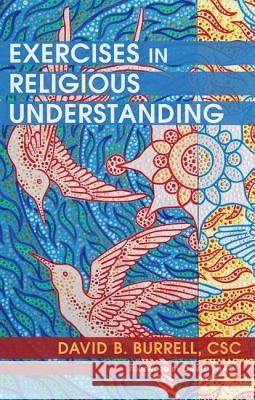Exercises in Religious Understanding » książka
Exercises in Religious Understanding
ISBN-13: 9781498286152 / Angielski / Miękka / 2016 / 260 str.
The dual purpose of this book is to point out the ways whereby reflective religious thinkers work and to suggest how these skills can be acquired. It is a manual of apprenticeship in acquiring religious understanding.The thought of Augustine, Anselm, Aquinas, Kierkegaard, and Jung on selected religious topics is developed expressly to show how each handled these issues and thus to provide living exemplars for religious understanding.The issues have an inherent unity in their dealing with mans knowledge of God, especially in their concern with the ways we treat what must be beyond our grasp.Augustine travels a journey of progressive awareness. As one scheme of understanding after another cannot offer an explanation, so it ends in confession. From his life we learn ""how to discriminate our action from Gods while discerning Gods action in ours.""In the case of Anselm and Aquinas the goal was to speak of divine things accurately enough to avoid misunderstanding, yet without giving a false impression that we have made clear what the divinity really is.Kierkegaard and Jung aim to clarify our experience of the transcendent. But this experience is expressed in a language whose success in removing the roadblocks to faith and understanding can be evaluated.David B. Burrell, C. S. C. is the Theodore Hesburgh Professor Emeritus of Philosophy and Theology at the University of Notre Dame. In addition to authoring more than one hundred fifty scholarly articles, his many books include Aquinas: God and Action (1979), a translation of al-Ghazalis Faith in Divine Unity and Trust in Divine Providence (2000) as well as Towards a Jewish-Christian-Muslim Theology (2011). He presently serves the Congregation of Holy Cross in Bangladesh.











